Markus Meechan is a criminal. Guilty of posting a YouTube video judged “grossly offensive” and containing menacing, anti-Semitic and racist material. He claims the video was a joke. Others claim, Markus is a Nazi. But what does the prosecution of a YouTube comedian mean for freedom of expression – is a censorious state overstepping the mark? Or are there some things you just shouldn’t joke about?
Related Movies
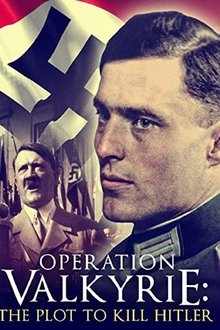
Operation Valkyrie: The Stauffenberg Plot to Kill Hitler (2008)
July, 1944. As WWII raged on, a group of conspirators, led by Claus von Stauffenberg, plotted to assassinate Hitler and end his reign of terror. Using rare color footage, painstakingly recreated dramatizations, detailed CG reconstructions and exclusive interviews with leading historians, this thrilling documentary presents the definitive record of what happened before, during and after these pivotal events.

Twee zussen in verzet (2016)
Old resistance fighters Truus and Freddie look back on their life during wartime.
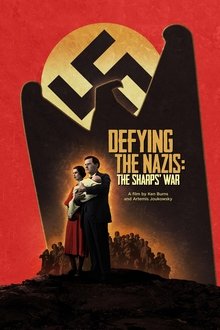
Defying the Nazis: The Sharps' War (2016)
Join an American couple’s courageous mission in 1939 to help refugees escape Nazi-occupied Europe. Over the course of two years, the pair will risk their lives so that hundreds can live in freedom.
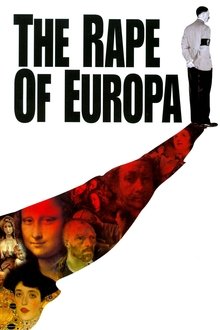
The Rape of Europa (2007)
World War II was not just the most destructive conflict in humanity, it was also the greatest theft in history: lives, families, communities, property, culture and heritage were all stolen. The story of Nazi Germany's plundering of Europe's great works of art during World War II and Allied efforts to minimize the damage.
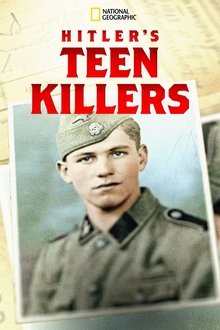
Hitler's Teen Killers (2020)
They grew up under the Nazi regime. They pledged to give their lives for Hitler. They were fanatics who would not be stopped. They were the 20,000 teenagers who made up the 12th SS Panzer Division. Unleashed in France to halt the Allied invasion, they would sow terror and destruction in their wake. Historical colorized archives and a handful of survivors tell us this story.
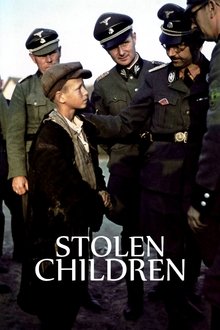
Stolen Children (2020)
June 1941, during World War II. Reichsführer-SS Heinrich Himmler orders the mass abduction of particularly well-bred young children from Poland and the occupied territories of the Soviet Union in order to be educated in German culture, by both state schools and German families…
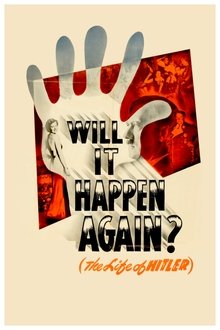
Will It Happen Again? (1948)
An account of Adolf Hitler's rise and fall, his relationship with Eva Braun and their days of leisure at the Berghof, their Bavarian residence.

Hitler Lives (1945)
This short film, produced at the end of WWII, warns that although Adolf Hitler is dead, his ideas live on.

SAS and the Normandy Campaign: Operation Bulbasket (NaN)
This programme follows the deployment of the main body of the SAS, the Recces on targets, the raids carried out both by the SAS and the bombing attacks they called in. As the SAS created havoc to the railway system the Germans were hunting them down. Eventually by the use of torture and information by collaborators the Germans tracked them down to their camp near Verrieres. The majority of the SAS were killed or captured. Those captured were later murdered by the Germans.. Their actions tied up large numbers of Germans in guarding the railways and imposed a severe delay on the movements of the 2nd SS Pz Div to Normandy. A few brave men had an impact on the liberation of France out of all proportion to their numbers
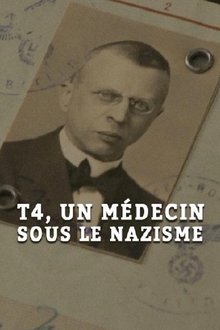
Operation T4: A Doctor Among the Nazis (2016)
A reckoning of Nazi Germany’s planned execution of its own citizens with physical and mental disabilities whom they deemed useless to their society.
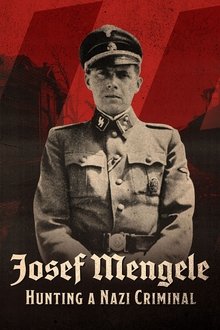
Josef Mengele: Hunting a Nazi Criminal (2017)
He was one of the most notorious Nazi war criminals, infamous for his deadly experiments on twins. But at the end of WWII, he simply disappeared. Despite a global manhunt by Mossad and the allies, he would die a free man, 34 years later, in Brazil. Who was Dr Mengele? What did he do after the war? And why was he never caught? We speak to those who knew him and profile the 'angel of death'.
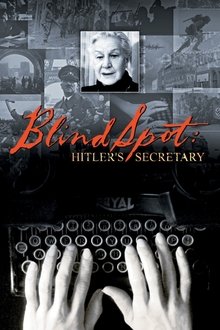
Blind Spot: Hitler's Secretary (2002)
Documentarians Andre Heller and Othmar Schmiderer turn their camera on 81-year-old Traudl Junge, who served as Adolf Hitler's secretary from 1942 to 1945, and allow her to speak about her experiences. Junge sheds light on life in the Third Reich and the days leading up to Hitler's death in the famed bunker, where Junge recorded Hitler's last will and testament. Her gripping account is nothing short of mesmerizing.
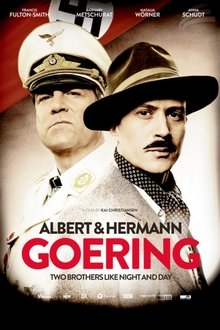
Albert & Hermann Goering (2016)
Two brothers who could not have been more different. The eldest, Hermann Göring (1893-1946), was a prominent member of the Nazi regime, head of the German Air Force, and a war criminal. The youngest, Albert Göring (1895-1966), opposed tyranny and was persecuted, but today he is still unjustly forgotten, although he saved many lives while his brother and his accomplices ravaged Europe.
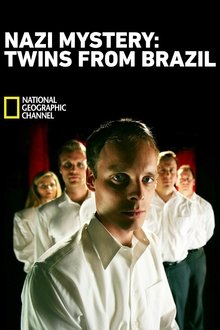
Nazi Mystery - Twins From Brazil (2009)
In 2009 a bizarre story spreads around the globe, reported as fact in the world’s newspapers: Josef Mengele – the infamous escaped Nazi concentration camp doctor, the Angel of Death, may have succeeded in his lifelong goal of creating a blonde, blue-eyed master race. An historian says he has evidence that Mengele’s bizarre experiments on twins may not have ended at Auschwitz, that his efforts to engineer an Aryan master race continued and succeeded while on the run in South America.

WWII From Space (2012)
WWII from Space delivers World War II in a way you've never experienced it before. This HISTORY special uses an all-seeing CGI eye that offers a satellite view of the conflict, allowing you to experience it in a way that puts key events and tipping points in a global perspective. By re-creating groundbreaking moments that could never have been captured on camera, and by illustrating the importance of simultaneity and the hidden effects of crucial incidents, HISTORY presents the war's monumental moments in a never-before-seen context. And with new information brought to the forefront, you'll better understand how a nation ranked 19th in the world's militaries in 1939 emerged six years later as the planet's only atomic superpower.
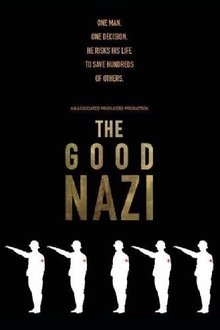
The Good Nazi (2018)
By tracking scientists and Holocaust survivors in Lithuania, The Good Nazi tells the story of a Schindler-type Nazi officer who turned his back on his dark ideology and risked his life to save hundreds of Jews.
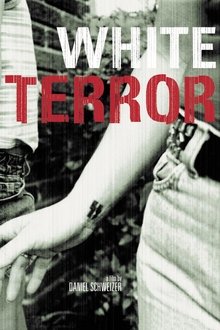
White Terror (2005)
A video about Neo-Nazis originating in Sweden provides the starting point of an investigation of extremists' networks in Europe, Russia, and North America. Their propaganda is a message of hatred, war, and segregation.

Zeitgeist (2007)
A documentary examining possible historical and modern conspiracies surrounding Christianity, the 9/11 terrorist attacks, and the Federal Reserve bank.
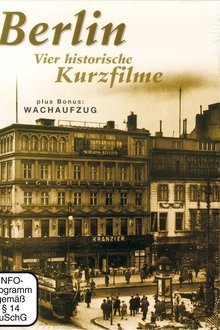
Berlin Reichshauptstadt 1936 (1936)
Berlin in the Olympic summer 1936. A Nazi propaganda film and a portrait in colour of the early 20th century city.
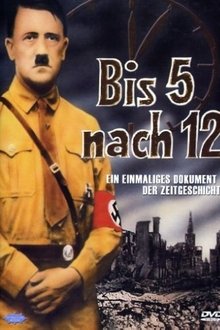
Adolf Hitler - Ein Volk, ein Reich, ein Führer: Dokumente der Zeitgeschichte (1953)
The film begins with the First World War and ends in 1945. Without exception, recordings from this period were used, which came from weekly news reports from different countries. Previously unpublished scenes about the private life of Adolf Hitler and Eva Braun were also shown for the first time. The film was originally built into a frame story. The Off Commentary begins with the words: "This film [...] is a document of delusion that on the way to power tore an entire people and a whole world into disaster. This film portrays the suffering of a generation that only ended five to twelve. " The film premiered in Cologne on November 20, 1953, but was immediately banned by Federal Interior Minister Gerhard Schröder in agreement with the interior ministers of the federal states of the Federal Republic of Germany.